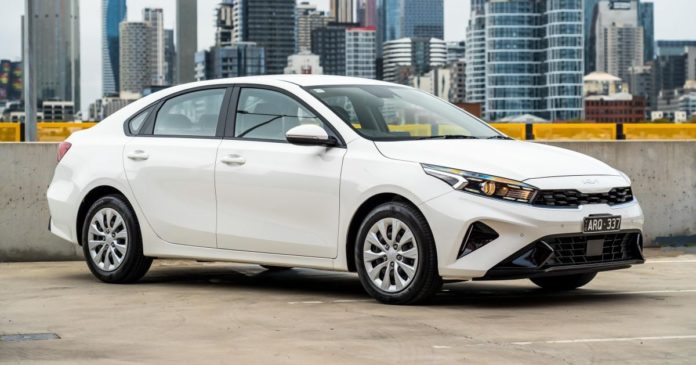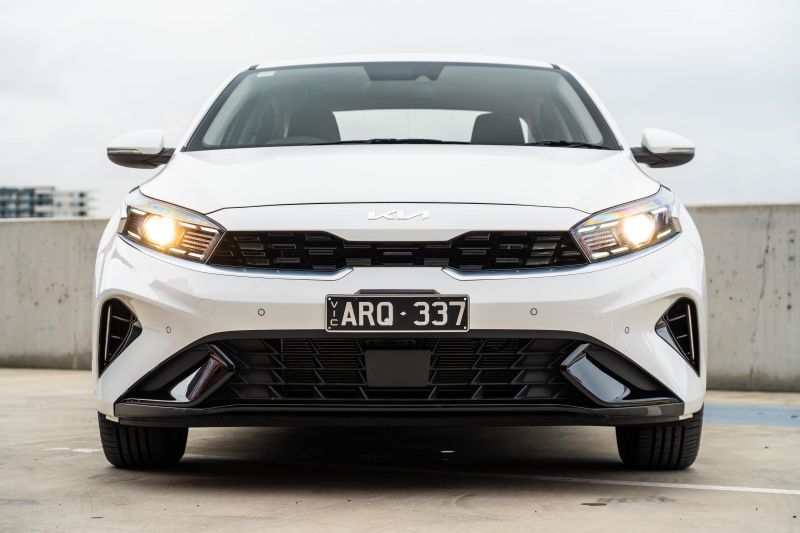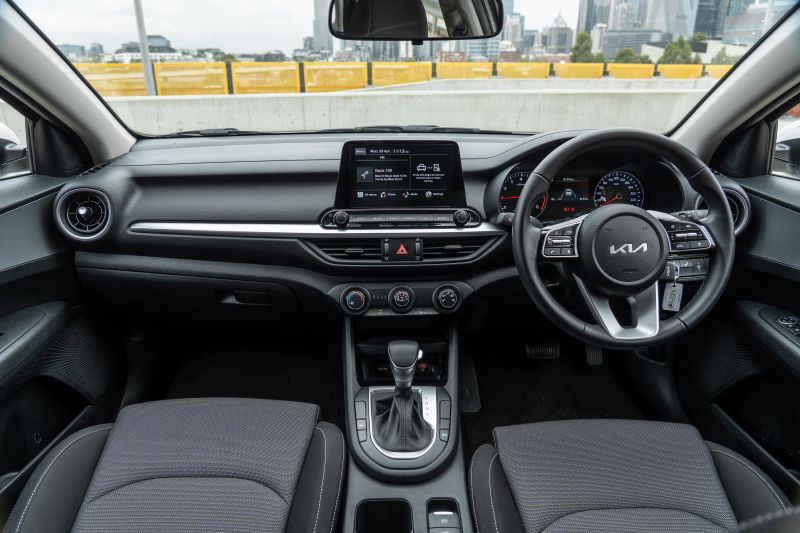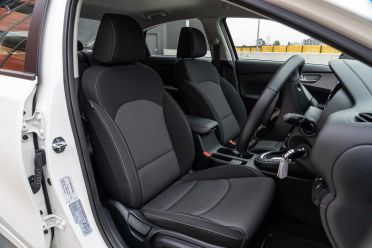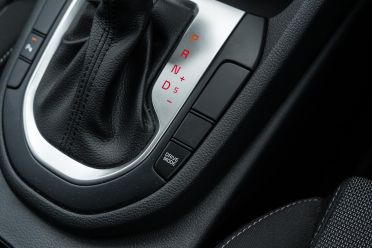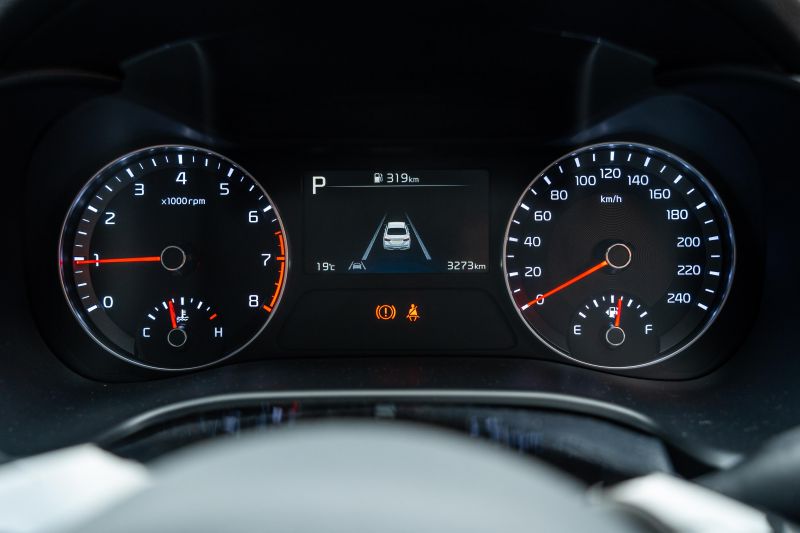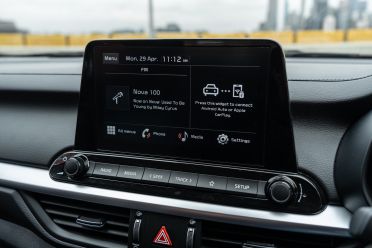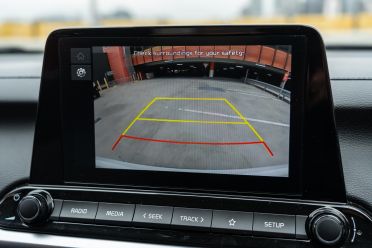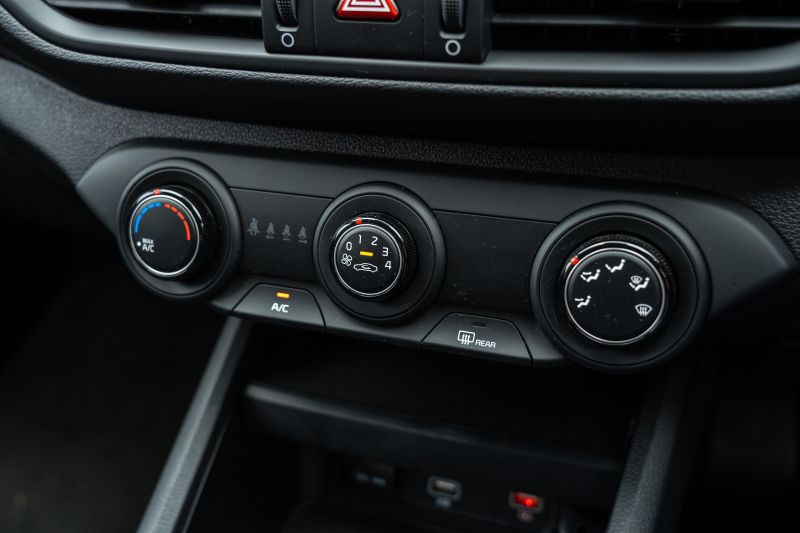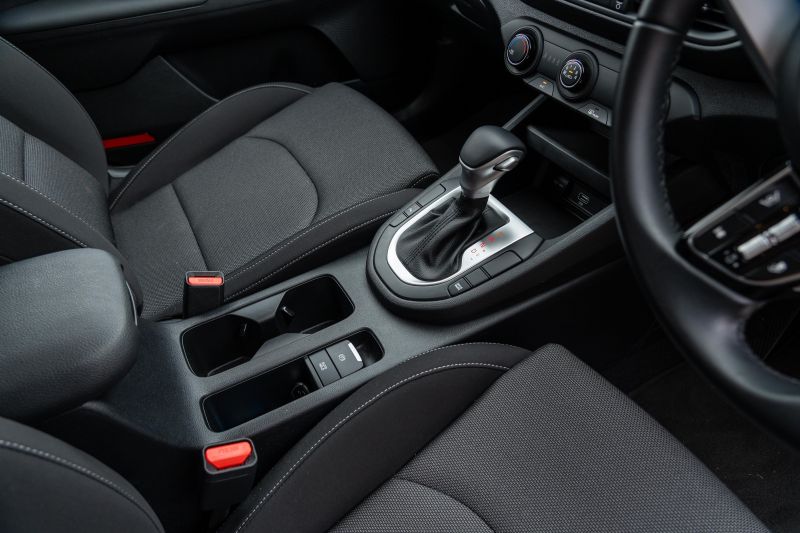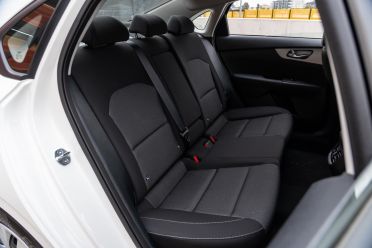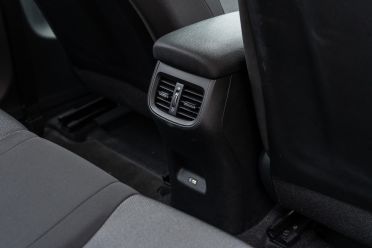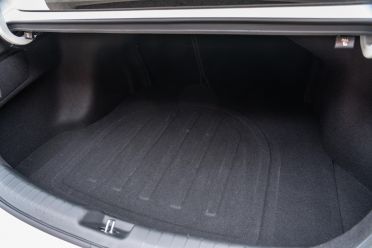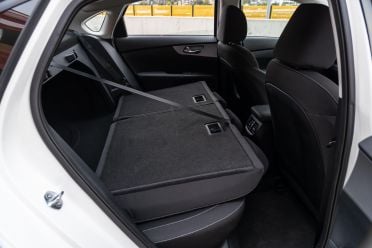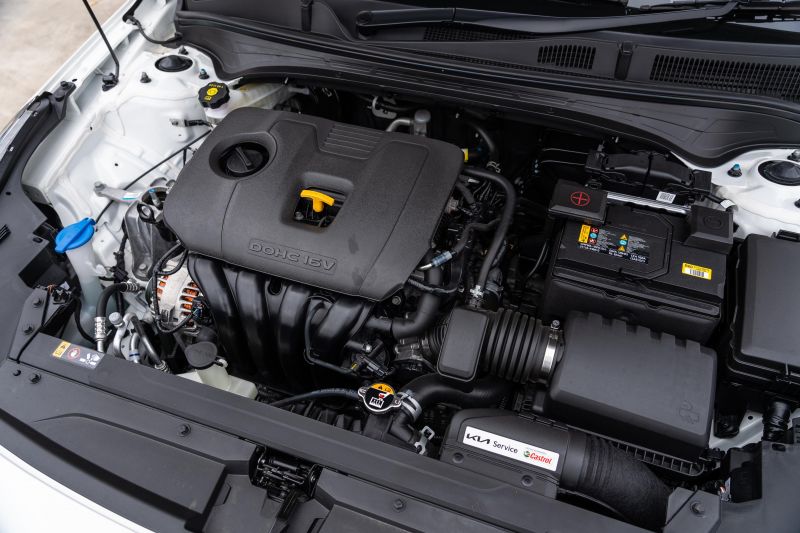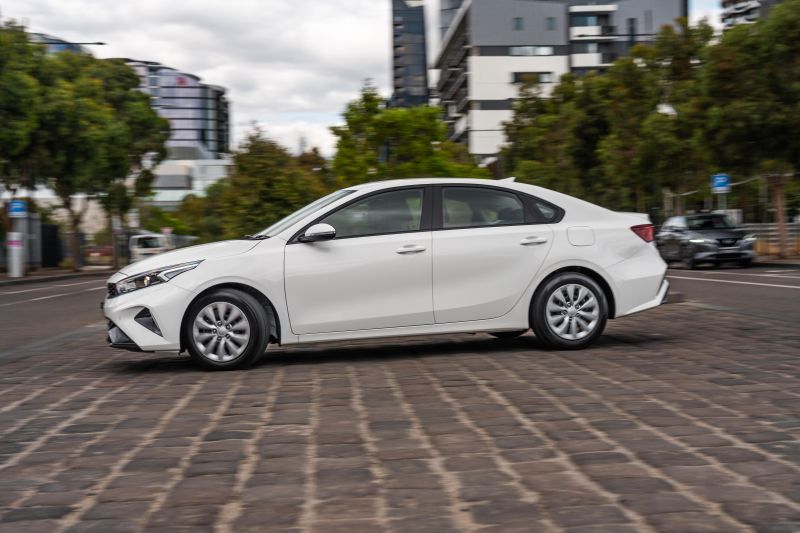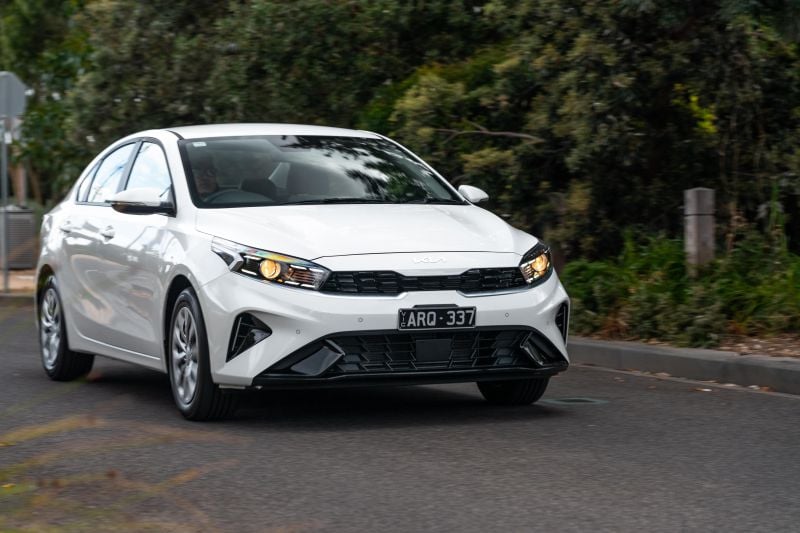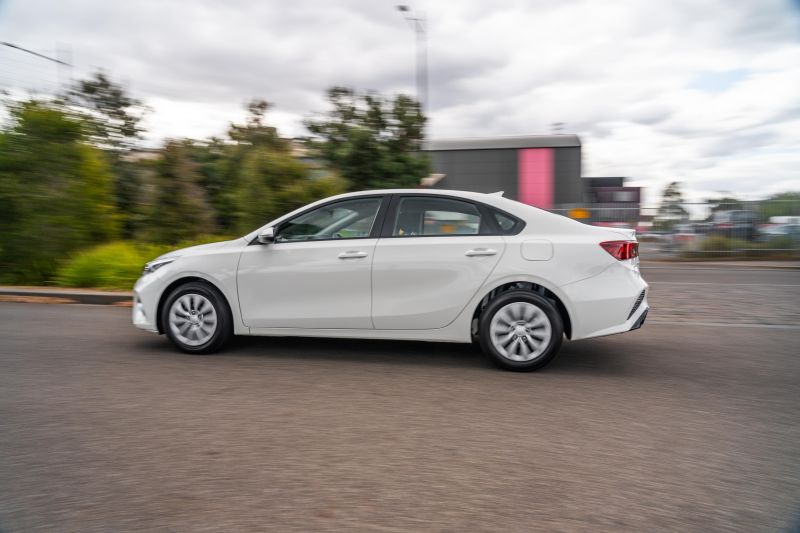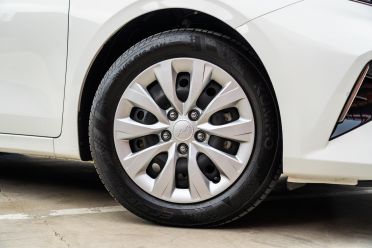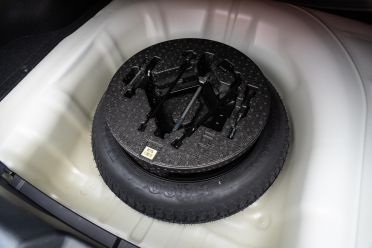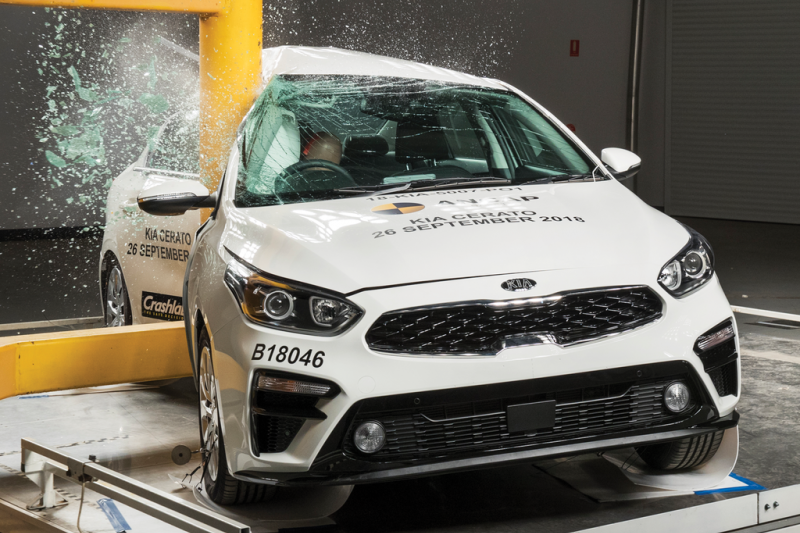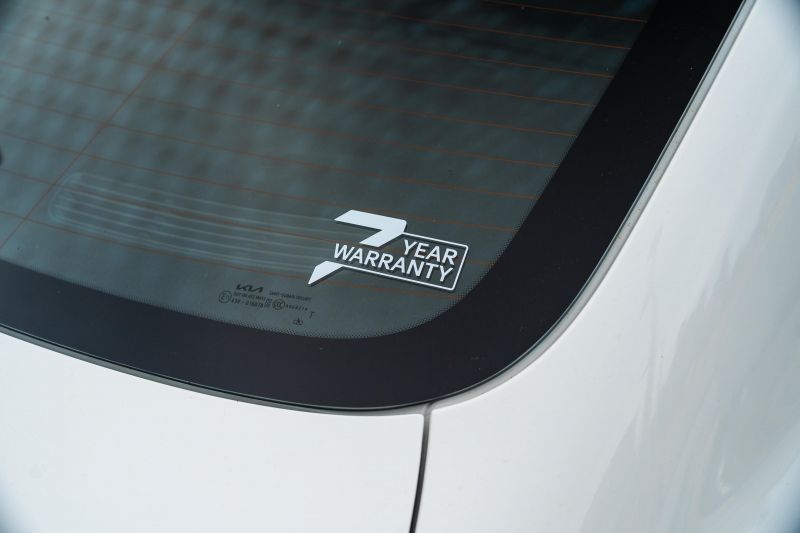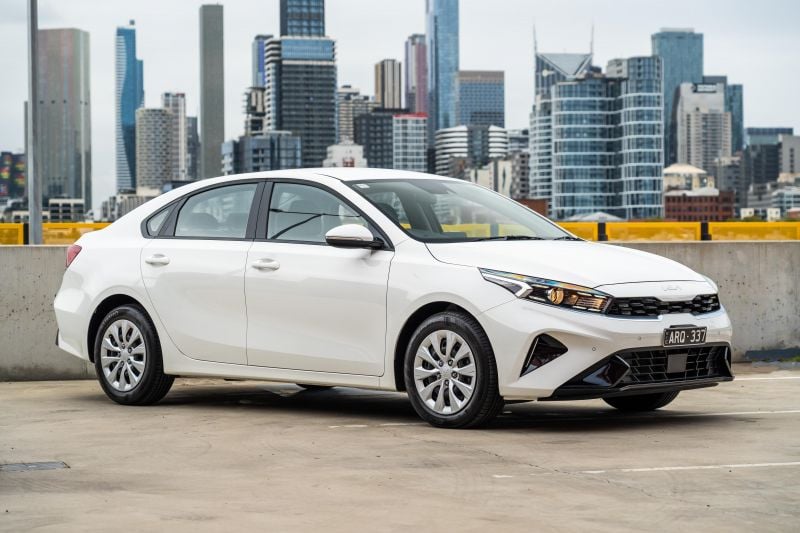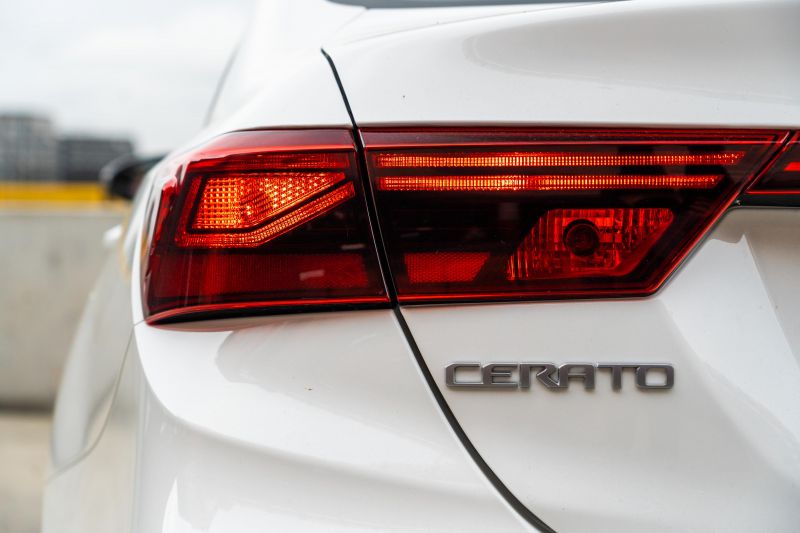If you’re in the market for a new Kia Cerato, time is running out.
The cheap and cheerful small car will be replaced by the all-new K4 next year, ending a production run of four generations and over 20 years.
It’s still relatively affordable, still has a long warranty, and still packs power from a petrol four-cylinder.
On paper, the Cerato isn’t exactly going out with a bang. No changes have been made to the model for 2024, while prices are up $900 across the range – despite the price rise, it’s still a lot of metal for the money.
You’ll need to pay more for a Hyundai i30, Toyota Corolla or Mazda 3, so it’s instead aligned with high-end versions of the smaller Mazda 2.
Is it still worth snapping up a Cerato before they’re gone for good?
How does the Kia Cerato compare?
View a detailed breakdown of the Kia Cerato against similarly sized vehicles.

Kia
Cerato
How much does the Kia Cerato cost?
The 2024 Kia Cerato range kicks off at $28,790 drive-away for the base S and tops out at $39,250 drive-away for the turbocharged GT.
The test vehicle featured here is a Safety Pack equipped S sedan with no additional options. The Kia Cerato is identically priced in both hatchback and sedan body styles.
Kia offers nationwide drive-away pricing for the Cerato, which is detailed below.
2024 Kia Cerato pricing:
| Model Variant | RRP | Drive-away price |
|---|---|---|
| 2024 Kia Cerato S | $27,060 | $28,790 |
| 2024 Kia Cerato S with Safety Pack | $28,060 | $30,290 |
| 2024 Kia Cerato Sport | $29,160 | $30,790 |
| 2024 Kia Cerato Sport with Safety Pack | $30,160 | $32,290 |
| 2024 Kia Cerato Sport+ | $32,210 | $34,490 |
| 2024 Kia Cerato GT | $36,860 | $39,290 |
To see how the Kia Cerato compares with its rivals, use our comparison tool.
What is the Kia Cerato like on the inside?
The interior of the Cerato is dull, but functional.
Hard black plastics dominate the space, including the centre console, door cards, and dash.
That’s not unexpected for an economy car, and Kia has been very selective with how its limited budget is distributed across the Cerato S.
Included in the Safety Pack is a leather-wrapped steering wheel, which sits satisfyingly in the hands. As does the gear lever, which is also trimmed in leather, and the plastics used in high-traffic areas such as the armrest have a soft touch.
Small pieces of plastic aluminium-look trim break up the sea of black, but it’s clear they aren’t the real deal.
Similar sentiments apply to the seats.
Trimmed in cloth, they don’t look especially premium, but it was easy to get comfortable thanks to supportive side bolstering and well-judged cushioning.
The headrests are contoured, which is a pretty neat and uncommon feature that makes them gentler on your head.
Behind the steering wheel you’ll find a small screen flanked by an analogue tachometer on the left and a similarly old-school speedometer on the right.
There’s no digital instrument cluster here – despite a 10.25-inch unit being available in South Korea – and the Cerato feels older than it is as a result.
The puny digital display can be customised to show vehicle settings, fuel economy, and speed information, and feedback for certain safety systems. It’s easy enough to navigate, but the button controls are tacky and unpleasant to use.
Moving from the gauges to the infotainment system, it’s like stepping through a time portal from the mid-2000s to 2024.
The 8.0-inch touchscreen is befitting of its modern status, complete with wireless smartphone connectivity.
Some premium new cars still required a wired connection for smartphone mirroring, so I was pleasantly surprised to see wireless capability on the spec sheet for this little budget sedan.
With that said, Apple CarPlay was prone to dropouts during my time with the car, and it’s difficult to exit the mirroring screen without a physical home button.
There’s also a noticeable lag between pressing a button and something happening on the screen, which stands out given we spend so much time using lightning-quick phones and tablets in 2024.
Although the infotainment system is wireless, there are two USB-A ports and a 12V outlet located under the climate controls, so both front occupants can charge their devices simultaneously.
Speaking of climate control, the layout will be familiar to anyone who has driven a car in the last 30 years.
All functions are adjusted through three rotary dials, one each for mode, temperature, and fan speed. Air is distributed through four vents up front.
Simple and effective, a big plus for any rental-spec vehicle.
Storage space benefits from such an uncluttered dash layout – you get two seperate iPhone-sized shelves under the climate dials, so both driver and passenger are looked after.
However, elsewhere space is limited. The front door bins are small and poorly laid out, while the armrest cubby and glovebox are similarly tight.
Dual centre cupholders are each big enough for a 1L drink bottle, and there’s a drop down holder for sunglasses above the dash.
Storage is also at a premium in the second row. Like many other compact cars, the rear door bins are only good for a small drink bottle, tops.
Map pockets are absent from the seat backs, although you do get a centre armrest with two fixed cupholders.
Connectivity is well covered in the front row and rear passengers aren’t neglected in that domain either, with one USB-C connection point available.
When it comes to space for people, the Cerato gets a pass mark.
Adults of an average size will fit comfortably, although taller folk may find their hair grazes against the headliner when sitting upright. There’s plenty of room for feet under the front seats.
Thankfully, the light headliner and a pair of air vents also prevent the car from feeling claustrophobic in the back. Whether you’re riding solo or travelling with a carload of passengers, the boot in the Cerato sedan provides plenty of cargo room.
With 502L of space, the Cerato has the most boot space in the small car segment, although the aperture is on the small side. If you need more room, the rear bench folds 60/40 to unlock extra capacity.
Annoyingly, there’s no way to open the boot manually without the key fob. That’s unacceptable in my book, and a real knock on practicality.
What’s under the bonnet?
All Cerato variants except the flagship GT are powered by a naturally aspirated 2.0-litre four-cylinder petrol engine.
| Model | Kia Cerato S with Safety Pack |
|---|---|
| Engine | 2.0L 4cyl |
| Power | 112kW |
| Torque | 192Nm |
| Transmission | 6-speed automatic |
| Driven wheels | Front |
| Kerb weight | 1360kg |
| Fuel economy (claimed) | 7.4L/100km |
| Fuel economy (as tested) | 12L/100km (urban driving) |
| Fuel tank capacity | 50L |
| Fuel requirement | 91 RON |
| Emissions (CO2) | 173g/km |
Our fuel economy figure was measured over 170km of mostly peak-hour commuting, with some short stints on the open road.
To see how the Kia Cerato compares with its rivals, use our comparison tool.
How does the Kia Cerato drive?
The Cerato is an easy and enjoyable car to drive with a flat learning curve.
-
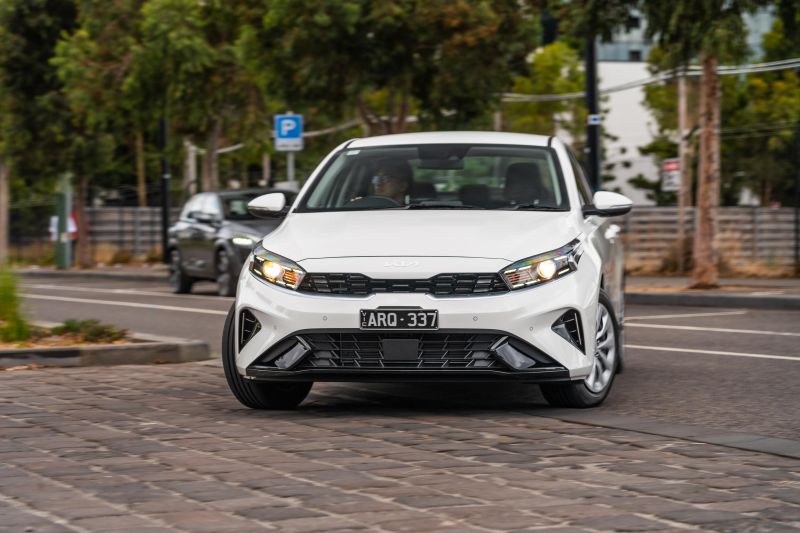
MY23 Cerato S shown
All the controls are simple to operate, and the small stature of the car makes it easy to place in city traffic and tight suburban streets.
That also applies to parking. The Cerato will fit in just about any parking space and a reversing camera is on hand to make the process even simpler.
While the S doesn’t claim to have any performance credentials, it feels sporty on quieter roads with smooth, naturally aspirated power and accurate steering.
You get 112kW and 192Nm from the 2.0-litre engine, which is more than enough for urban driving. It’s happiest when you’re taking things easy, put your foot down and you get lots of revs, lots of noise, but not all that much performance.
The steering in particular surprised me, as some other modern steering systems can be overly light and inconsistent.
A forgiving suspension setup ensures that the Cerato manages to be both sporty and comfortable, even over potholes and speed bumps.
It’s by no means flawless, though.
Some of the additional safety systems included with the Safety Pack are too intrusive in their default settings, namely blind-spot monitoring and forward collision-avoidance.
The blind-spot monitoring system has the tendency to warn you if a car is driving alongside in a separate lane, while forward collision-avoidance tech at times brakes and abruptly shudders the Cerato if you pass narrowly between parked cars or try to navigate a tight city laneway.
Some of these issues are remedied by adjusting safety settings through the infotainment screen, but not all.
I wouldn’t mess with the rear cross-traffic alert feature, however, as it functioned seamlessly and took the anxiety out of reversing into busy streets.
Out on the highway the Cerato is comfortable cruising, retaining a cushiony ride at high speeds.
The cabin is well insulated from outside noise, so longer road trips don’t become a chore.
If you are trying to accelerate uphill with a load on board, however, you get lots of noise from the petrol engine as it strains to get the job done.
Adaptive cruise control comes with the Safety Pack, and the technology operates smoothly on those extended journeys.
It was hard to get a fair gauge on the efficiency of the Cerato during our test, as most of the kilometres were chalked up in city traffic, but I was still surprised to see a fuel consumption figure of 12L/100km.
What do you get?
The S is the entry point into the Cerato range, although our tester was fitted with the $1500 Safety Pack – here’s what you get with each variant.
Cerato S standard equipment:
- 16-inch steel wheels
- 8.0-inch touchscreen infotainment system
- Wireless Apple CarPlay and Android Auto
- 4.2-inch instrument cluster screen
- Cruise control
- Air conditioning
- 6-speaker sound system
- Automatic headlights
- Automatic high-beam
- Tilt and telescopic adjustable steering column
Cerato Sport adds:
- 17-inch alloy wheels
- 10.25-inch touchscreen infotainment system
- Wired Apple CarPlay and Android Auto
- Satellite navigation
- DAB digital radio
- Illuminated vanity mirrors
- Leatherette-wrapped steering wheel and shifter
Cerato Sport+ gains:
- Leather-appointed seats
- Heated front seats
- Dual-zone climate control with auto defog function
- Electrochromatic rear-view mirror
- 15-inch rear disc brakes
- Electronic parking brake
- Power-folding exterior mirrors
Cerato GT adds:
- 18-inch alloy wheels
- Multi-link rear suspension
- LED headlights and tail lights
- LED interior lighting
- Leather-appointed ‘sports tubular’ trim
- Flat-bottom leather-wrapped steering wheel
- Wireless phone charging
- 8-speaker JBL premium sound system
- Hands-free power boot-lid (sedan only)
- Dual exhaust
- Alloy pedals
- Paddle shifters
- Tilt/slide sunroof
- Ventilated front seats
Is the Kia Cerato safe?
The Kia Cerato was last tested by ANCAP in 2019, with two different ratings covering the range.
Kia Cerato S and Sport models without the optional Safety Pack received a four-star rating, while those with the $1500 Safety Pack as well as Sport+ and GT variants were awarded a five-star rating.
Standard safety equipment includes:
- Autonomous emergency braking with pedestrian detection
- Lane-keep assist
- Lane Following Assist (lane centring)
- Rear occupant alert
- Driver attention alert with leading vehicle departure alert
- Reversing camera with front and rear parking sensors
- Tyre pressure monitoring
- Front, front-side, and curtain airbags
Safety Pack (S and Sport) and up add:
- Autonomous emergency braking with pedestrian and cyclist detection
- Blind-spot monitoring
- Blind-spot assist (Sport+, GT only)
- Rear cross-traffic alert
- Adaptive cruise control
- Safe exit warning
Sport+ and up also receive active rear cross-traffic assist.
How much does the Kia Cerato S cost to run?
All Kia Cerato variants are covered by the brand’s seven-year, unlimited-kilometre warranty in Australia.
The Kia Cerato S, Sport and Sport+ require services every 12 months or 15,000km, while the GT has a stricter schedule with 12-month, 10,000km intervals.
Kia offers seven years of capped-price servicing, which equates to $2970 for the Cerato S, Sport and Sport+, while Cerato GT owners pay $3281 across the same period.
CarExpert’s Take on the Kia Cerato
The Kia Cerato S is a practical and competent economy car that’s ready for a refresh.
It has enough infotainment and safety technology to keep up with the pack, and is comfortable to drive both in the city and on the open road.
You also get more room in the second row than most similarly priced hatchbacks, while Kia is the class leader when it comes to boot space.
Having said that, none of this is new for 2024 and prices have jumped $6800 since the current model hit the market six years ago.
The interior is a relic of that time, as is the inefficient powertrain.
Sedan rivals in this price range are hard to come by, but the Hyundai i30 is a newer platform that offers the option of hybrid efficiency and superior interior polish… if you can stretch your budget.
Click the images for the full gallery
MORE: Buy a Kia Cerato
MORE: Everything Kia Cerato

